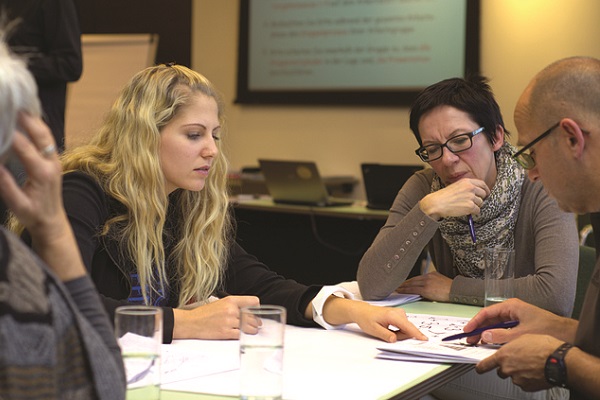Words: Prof M S RAO
You can easily judge a person by the way they approach a conflict. If one approaches with a negative attitude, the conflict gets aggravated. When one approaches with a positive attitude, the conflict could get resolved easily, also quickly.
“Nothing can stop the man with the right mental attitude from achieving his goal; nothing on earth can help the man with the wrong mental attitude,” said Thomas Jefferson. We are responsible for most problems. We often blame god for all our problems, when we alone are responsible for most, if not all of them. Most of our problems are due to our skewed, or moldy, attitude.
When we attack others negatively and with a bad attitude, we invite problems for ourselves. Sometimes, envy takes over and we break our relations with others. Ultimately, we blame god. We make mistakes and blame god, the ‘scapegoat,’ for the most part. As long as we enjoy pleasure, we forget god; but, the moment pressures begin to build up, we ‘recall’ god and hold Him accountable for all our problems.
We must be grateful towards others and towards god. Always.
Most of the time, we react to problems, instead of acting vis-à-vis them. We blame individuals for every issue without looking at ideas to resolving them. We also often want an easy life, quick success and we compromise on several things. Now, we blame god for the consequences.
90:10 Principle
When one of my students wanted to share the 90:10 ‘principle’ with me, I asked him to in the presence of other students so that they too could benefit. He said that 90 per cent of problems could be solved by acting rather than reacting to the situation and that 10 per cent of problems were beyond our control. The inference is — we should not concern ourselves much with the 10 per cent that arises out of external forces and factors. The most realistic thing we’d all do is to take a quick look at the 90 per cent of problems that can be tackled — with a proactive attitude and approach. The more we treat every problem as a prospect and every lesson as a path towards success the better it is for us and others.
Reaction Versus Response
People often miss the subtle difference between reacting and responding. There is a difference — the former conveys a negative connotation; the latter a positive message. If people know the difference and approach a situation intending to respond rather than react to challenges, most problems could be averted and conflicts resolved.
It is essential to respond rather than react and act rather than react. While responding and acting to issues sounds better than reacting, most people react rather than respond to unfavorable situations. This may prove costly later. Most people are aware of this; yet, it is unfortunate they continue to react at the spur of the moment only to regret later.
When faced with problems, people often react rather than act without giving a serious, or considerate, thought to it. This aggravates the problem. Sometimes, people magnify tiny problems and worry a lot — this results in more provocative reactions. Certain things in our lives are beyond our control. There is no point in reacting to such situations; we can just avoid getting into the rut.
People often waste their precious energies by brooding over things over which they have no control too. The lesson to be learned is — while reacting often leaves us in the lurch, it need not be so. The more you work with, or around, your time, patience and practice, you can make responding your primary method of dealing with tricky situations.
Life is in your hands. You have a choice to make — to react, or respond, to a conflict, or tricky situation.
It is rightly said that below-average individuals talk about individuals, average individuals talk about issues, and above-average individuals talk about ideas. Everything is present in the human mind; this highlights how individuals view scenarios and approaches to handling them. The reason is simple, also profound. When you look at the whole context, you will perceive that ‘act’ is accompanied by a positive attitude, while ‘react’ has a negative connotation.
Your life depends on the path you choose and the decisions you make. Life is full of challenges, and we all face problems from the cradle to the grave. Our problems end the day we go to the grave. Hence, it is all the more essential to respond rather than react to several problems. Doing so makes sense; it makes your life peaceful and pleasant. It also helps you to empathise with others, when they have problems of their own.
Most wars have broken, or break out, due to the reactive attitude of the powers-that-be. If they had only acted with restraint, they could have averted, or prevented, several wars. Ultimately, it is people who get killed, while countries and economies get shattered. Hence, reaction is something people should avoid. When people act rather than react, most of their problems resolve naturally. The best thing to have a positive, right and strong attitude and learn to act rather than react to situations. The best thing to do is to cultivate and espouse an attitude of gratitude towards god too — to act, and not react.

